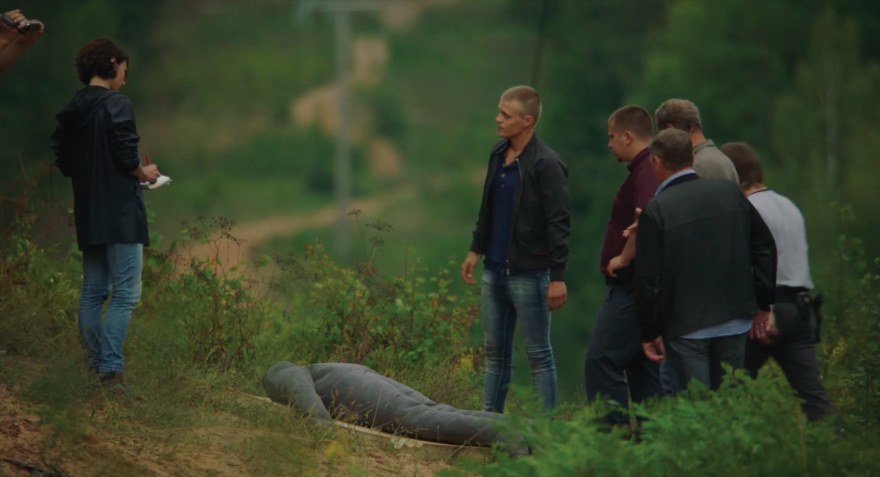Nightcap with Atkūrimas [Dummy]
Interview with Laurynas Bareiša, director of Atkūrimas [Dummy]
Atkūrimas, your powerful and chilling short, is about perversion and violence, and shows acts of raw brutality. How did you approach the filming of such scenes?
First, I worked with Paulius, who played the perpetrator, separately and I introduced him to the rest of the cast only on the day of the shoot. I worked with the rest of the cast on the staging and dialogue and the perpetrator’s part was kind of a performance within a performance, where he was given freedom to perform his role within the boundaries created by the police crew. I had worked with Paulius before and our first short film together was based on a similar subject matter, so part of the work was merging that previous experience with these new circumstances. Curiously, that film was about the events leading to a murder and Dummy is all about what comes after, so we had a strange sense of continuity between the two films, even though they are both based on different events.
The mise en scene brilliantly gives an insight into the dynamics of what we now call toxic masculinity. Can you tell us a bit about this aspect of the film?
This part is all based on the stories from my sister’s everyday life. I tried to include and condense the micro-aggression, sexist remarks and awkward jokes that she has to endure in a working environment dominated by men. Though she does not work in a law enforcement agency, she works in IT, this culture translates to all kinds of jobs. Film industry is not an exception.
What was the hardest part for you while making Atkūrimas and why?
Staging the last scene was difficult for me, because we had a large camera setup with a big Angénieux lens, and very little space to manoeuvre. I had to reshoot the scene where the men are in the river several times in order to get the composition right. It was fortunate that we shot in chronological order, because the actors were wet, cold and tired after that scene.
What is the most important thing you’d like the audience to take from your short?
I would like the audience to feel disgusted and angry about the routine gender violence, no matter in what form, verbal or physical.
What do you think the future holds for short films?
I hope the community continues to expand, because it gave me the chance to express my ideas in a way it would be impossible in feature films. I would love to see a short film section on Netflix, maybe the current crisis will present more opportunities for growth.
If we were to go back into lockdown, what cultural delights would you recommend to alleviate our boredom?
I May Destroy You by Michaela Coel and How to with John Wilson.








